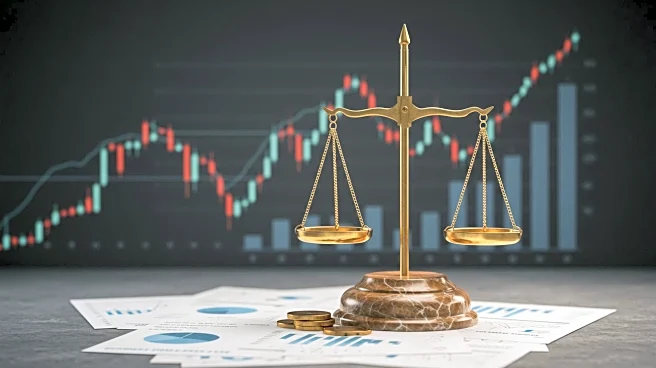What's Happening?
Federal Reserve Chair Jerome Powell is set to deliver a speech at the annual Jackson Hole Symposium, a gathering of central bankers, where he is expected to unveil the Fed's new policy framework aimed at achieving inflation and employment goals. This comes amid mounting pressure from President Trump for the Fed to ease monetary policy. Recent data indicates persistent inflation above the Fed's 2% target and signs of a labor market slowdown, leading to divided opinions among policymakers on the timing of rate cuts. Powell's speech may provide insights into the Fed's stance on interest rates and its response to the economic impact of tariffs imposed by the Trump administration.
Why It's Important?
The Jackson Hole Symposium is a critical event for global economic stakeholders, as it provides a platform for central bankers to discuss monetary policy strategies. Powell's remarks are particularly significant as they could influence market expectations and the Fed's approach to managing inflation and employment. The outcome of this symposium may affect U.S. economic stability, impacting industries reliant on borrowing costs and consumer spending. Additionally, the Fed's decisions could have broader implications for international trade relations, especially in light of ongoing tariff disputes.
What's Next?
Following Powell's speech, attention will turn to the Fed's September policy meeting, where further clarity on interest rate adjustments is anticipated. Stakeholders, including businesses and investors, will closely monitor the Fed's actions to gauge the potential impact on economic growth and inflation. The Trump administration's continued pressure on the Fed to lower rates may also influence future policy decisions, adding complexity to the economic landscape.









